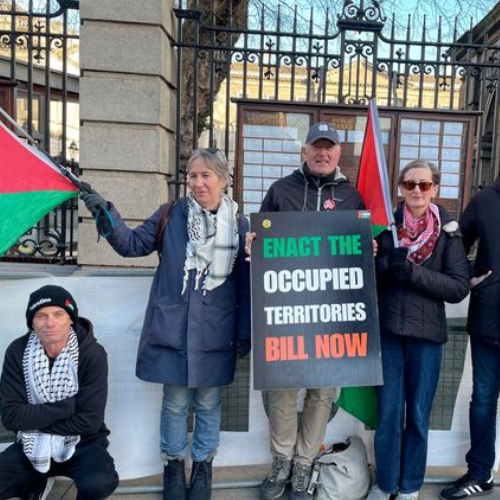Ireland has just taken a bold step that no other country in the European Union has done before. On Tuesday, May 27, the Irish government approved the creation of a new law that could stop the import of goods from Israeli settlements located in areas known as the occupied Palestinian territories. These areas include the West Bank, East Jerusalem, and the Gaza Strip. According to international law, these settlements are considered illegal.
This move is Ireland’s way of saying that it wants to follow international law. The country’s leaders believe they are doing what is right based on a legal opinion from the International Court of Justice (ICJ), which said that Israel’s occupation of these territories is against international rules.
The settlements in question include homes, farms, and businesses built by Israelis in Palestinian lands that are outside Israel’s accepted borders. These goods do make their way into European markets, though only in small amounts.
An Irish spokesperson from the foreign ministry said clearly that the law will aim to block trade with these settlements. This includes all kinds of products, from food and wood to manufactured goods. The spokesperson also said this step is based on what international law demands.
UK Slams Israel: Trade Talks Paused, Sanctions Hit Settlers Amid ‘Horrifying’ Gaza Escalation
Before the decision was finalized, Simon Harris, Ireland’s Foreign Minister and Deputy Prime Minister, told reporters he hoped other European nations would take similar steps. He said, “As a small country in Europe taking this step and likely being the first in the Western world to propose such legislation, I truly hope it encourages other European countries to follow our example.”
Not Just About Trade
While this move might sound like a big blow to trade, the actual financial impact is expected to be very small. Ireland’s trade with these occupied areas is tiny. Between 2020 and 2024, goods coming into Ireland from these places were worth less than one million euros. That’s a small number compared to how much Ireland trades with other countries.
Still, the decision is very important symbolically. It shows that Ireland is willing to take a strong position even when it doesn’t have a large economic reason to do so.
Before the cabinet decision, Ireland had already joined a few other European countries in recognizing Palestine as a state. This includes Spain, Norway, and Slovenia. These countries took that step last month, while France’s President Emmanuel Macron also said France might do the same in June.
The Irish government hopes that their action might encourage other European countries to also think about how they trade with the occupied territories. Ireland’s foreign affairs leaders believe that this could set an example for others to follow.
Israel’s Humanitarian Strategy in Gaza Under Fire from UK, France, Canada and Aid Groups
The EU’s Growing Attention
This decision didn’t happen in a vacuum. Just a week before, the European Union itself decided to take a fresh look at an agreement it has with Israel. This deal, known as the EU-Israel Association Agreement, was originally signed in 1995. It mainly deals with how countries in the EU trade with Israel and how they cooperate in other areas like science and technology.
EU leaders decided to review this agreement because of growing concerns about how Israel is acting in the occupied Palestinian territories. Kaja Kallas, the EU’s foreign affairs chief, stated that the majority of the 27 member states backed this decision. They believe that something needs to be done to make sure international rules are respected.
While Ireland is the first EU country to move forward with a law like this, it is clear that more countries are starting to ask questions. The Irish government said it would work more on the details of the bill in the coming weeks. However, it is not expected to become official law until at least the autumn.
For now, Ireland has taken a strong step. Even though the trade affected is small, the message it sends is loud. It is a sign that one small country is ready to speak up when it believes something is not right.


